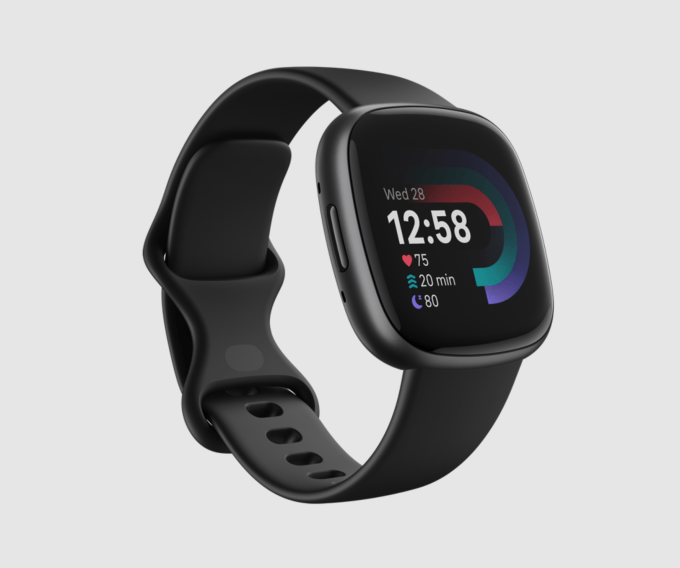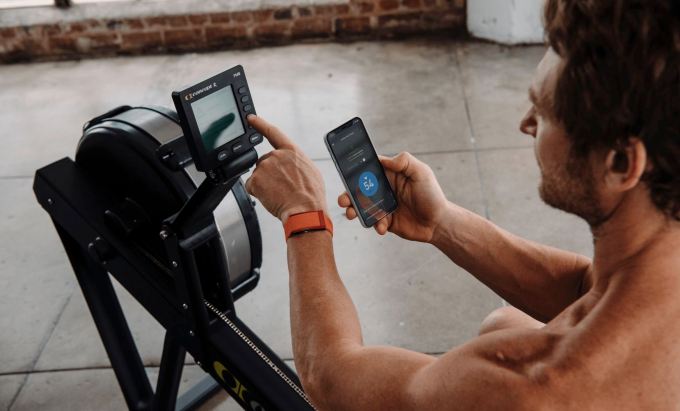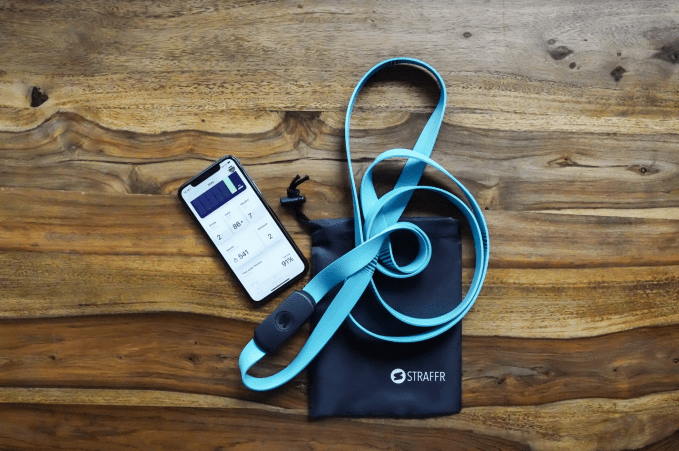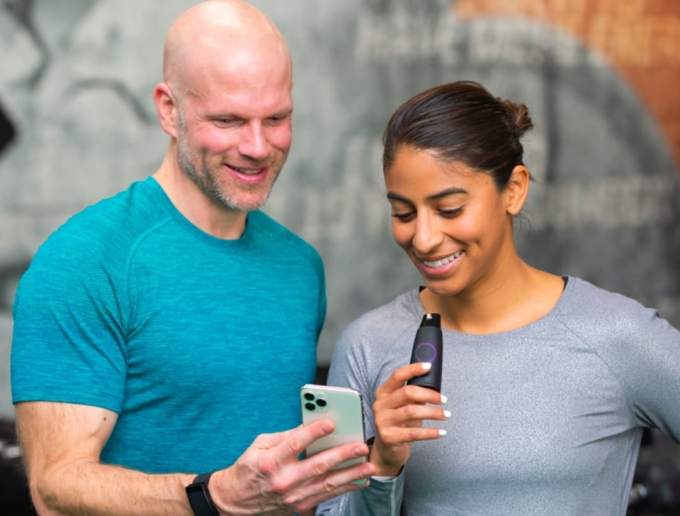Keeping fit doesn’t need a lot of technology. A decent pair of running shoes and an exercise mat might just do it. But of course sometimes a little extra tech can give an inspiring boost — so long as whatever it is is useful, accessible and can move with you.
The smart spot for fitness tech is stuff that enhances and/or motivates training and performance. Think well designed kit, easy to access expertise, and trackers that give meaningful, actionable feedback, rather than expensive gym-style machinery that locks you into a subscription and chains you to the same static hardware every day.
So this holiday season if you’re buying a gift for a fitness lover or that special athlete in your life check out our round-up of smarter gift ideas — picked for their on-the-go potential to up their game or boost training anywhere.
This article contains links to affiliate partners where available. When you buy through these links, TechCrunch may earn an affiliate commission.
Beats Fit Pro exercise-friendly earbuds

Exercising is often either a solo slog or a distracting cacophony at the gym so a good pair of headphones is a must. Just pop on a podcast or your favorite motivational music and off you go. But which buds to pick for a fitness fanatic? Apple-owned Beats’ Fit Pro earbuds are — as the name suggests — designed with physical activity in mind. So there’s at least a half-decent chance they won’t ping out mid run or slip out in a rain of fresh sweat.
As with Apple’s own brand AirPods, the Beats buds feature active noise cancelling but also a transparency mode so the wearer can stay aware of their surroundings — an essential consideration for road runners. For something a little less standard, the line had an update this summer when Beats announced a collaboration with Kim Kardashian, on a trio of nude/flesh toned Beats Fit Pro ‘phones — for an understated fashion statement.
Price: $200 from Amazon
Apple Fitness+ subscription

If you’re buying for an iPhone user, a subscription to Apple’s Fitness+ service could be a quick win — putting all sorts of video and audio workouts on tap on their device, from low intensity yoga to high octane HIIT. Back in October, Apple opened up access to Fitness+ by no longer requiring subscribers also own an Apple Watch so it’s more accessible than ever.
One gifting niggle: You can’t buy a dedicated Fitness+ gift sub from Apple — you’d have to purchase a general Apple Gift Card, instead.
Price: For an idea of how much to load on the Gift Card, the cost of Fitness+ is $9.99 per month — or you could splash out $79.99 for a year’s access.
ClassPass Gift Card

A solid gift idea for a gym bunny who’s always on the road or just easily bored: ClassPass’s monthly fitness membership could be just the ticket as it gives the holder access to a million boutique workaround studios around the world — letting them change up their routine to suit their mood, location, energy level and so on. Activities on offer run the gamut from yoga and pilates to dance, barre, boxing, bootcamp and many more.
ClassPass membership requires a subscription but your recipient doesn’t have to be a member already as there’s a gift purchase option. This lets you choose an amount to give — which can then be redeemed against a membership of their choosing.
Price: Varies by length of membership, but suggested gift amounts start at $50.
Fitbit Versa 4 smart watch

Google-owned Fitbit has been honing a range of fitness smart watches for several years in a bid to challenge the Apple Watch’s dominance of the wearable category, building out from humble beginnings flogging step-tracking wristbands. Marketing for its Versa 4 smart watch touts “better results” from workout routines, thanks to features like a “daily readiness” score to help the wearer pick between a challenging workout or opting for a recovery day. It can also suggest workouts; provide a recommended daily active minutes goal; and serve up a wellness report (drawing on health tracking trends over the past 30 days) — as well as offering partner workouts on-demand — although you’ll need a premium subscription to access these extra bells & whistles (but six months comes bundled free with the smart watch so your recipient will get a good taster). Minus premium, the Fitbit Versa offers the usual core workout tracking plus real-time stats access that smart watches have become best known for.
Price: $230 for the smart watch from Amazon; $9.99 per month for premium (once free trial expires)
Whoop 4.0 membership

Move over smart watches! Whoop’s faceless fitness band is geared towards athletes who are serious about tracking their performance and recovery in order to dial up their training and competitive potential. The company claims its sensor-packed tracker yields the “most in-depth fitness and health feedback” available on a wearable — touting “best in class” accuracy measurements that keep tabs on key vital signs like blood oxygen, skin temperature and heart rate metrics — with all this data put to work providing an individual “strain” score which is intended to smartly steer the wearer’s training. Other features include a haptic alarm that can be set to wake the wearer at an optimal time based on sleep needs and cycles (good luck not being late to the office with that though.)
Whoop’s wearable is sold as a fitness subscription with the latest version of the hardware bundled into the membership price. But gift subscriptions are available, with either a one year or two year membership priced at $300 and $480 respectively.
The company also sells a range of undergarments that are compatible with its tracking hardware, as they’re able to house the sensing pod next to your skin — which could make a nice alternative gift for an already paid-up Whoop member.
Price: Depends on length of membership
Whoop raises another $200M for its athlete-focused fitness wearable
Nike ZoomX Vaporfly Next% 2 racing shoes

Touted by sportsware giant Nike as one of the fastest shoe it’s ever made, the Nike ZoomX Vaporfly Next% 2 is ‘smart’ in the sense of being highly engineered for a feeling of speed. Packing a full length carbon fiber underfoot plate, the design creates a feeling of propulsion that’s designed to motivate runners to dig deep and up their pace. Layered below that is Nike’s cushiony ZoomX foam for added energetic bounce. Up top, the sneaker fabric incorporates a lightweight mesh for breathability.
The shoe is available in men’s and women’s models and a range of eye-popping colors. Gift heaven for runners.
Price: $250
Under Armour Flow Velociti Wind 2 run-tracking shoes

What about a pair of shoes that automatically track your run? These lightweight Under Armour kicks (available in men’s or women’s models) have built in sensors that let them track metrics like cadence, foot strike angle, stride length, splits etc so there’s no need to strap on a smart watch or other type of exercise tracker. The sneakers connect to UA’s MapMyRun service to power run analysis, with access to the service bundled with the shoe up to December 31, 2024.
As well as capturing and crunching the runner’s data, UA’s digital fitness platform — which has its origins in its 2013 acquisition of MapMyFitness — provides motivational features, letting the wearer set goals and participate in monthly challenges. The “smart coaching” experience also includes personalized, audio running tips in real-time. And while the sneakers need pairing to a phone (via Bluetooth) and may require updating, at least there’s no manual charging required.
Price: $160
Agogie Resistance Pants

For the exercise lover who’s not big on apps (or ‘smart’ gadgets), these resistance pants offer a neat low-tech fitness gift option. There’s no tracking or quantification built in — just a little extra physical challenge since the pants come with eight elastic resistance bands sewn into seams running along the legs. The idea is that this will make your usual workout a little tougher by default as the added resistance activates muscles and works them a bit harder, helping boost strength and tone. The pants come in two grades of resistance, as well as in men’s and women’s sizes, with a variety of color options.
Price: $129 from Amazon
Straffr smart resistance band

Give the gift of gym-class style inspiration on the go! German startup Straffr’s smart resistance band bestows its holder with the power perform strength training workouts wherever they are and gives them real-time feedback.
The stretchy band contains sensors running along its length so it can quantify workout performance as you move. The band connects via Bluetooth to a mobile device running Straffr’s companion app — which dispenses feedback verbally as you flex, as well as logging stats, tracking progress and offering a bunch of on-demand strength and HIIT training workouts to help you structure a strength training session.
The smart band is available in two strength grades: Medium (5-15 kg) or Strong (15-25kg).
Price: €99.99 (~$103) or €119.99 ($124) respectively.
Straffr is a smart resistance band that helps you exercise on the go
Lumen track-it-and-hack-it metabolic fitness

Lumen, a portable breath-testing CO2 sensor, came to market a few years ago. It’s the brainchild of a pair of endurance athletes who went looking for ways to better understand the impact of nutrition and workouts on their bodies to boost their performance. They came across an existing metabolic measurement, called RQ (Respiratory Quotient) — aka, the gold standard for measuring the metabolic fuel usage of an individual — which had been used by top-performing athletes for years but was expensive and difficult for a general consumer to access. Hence they set out to democratize access to elite metabolic tracking.
The upshot is a hand-held breath tester that they claim is able to measure an individual’s RQ in one breath and tell them whether their body is burning carbs or fats to get energy. The companion app guides the user to act on this metabolic tracking — nudging them to improve their metabolic flexibility through diet and exercise suggestions. How is all this good for fitness? Basically, better metabolic health means more energy available to knock it out of the park when you’re working out. So it’s about fuelling right to optimize athletic potential. Though it’s worth emphasizing that Lumen’s approach remains experimental, given the use of novel, proprietary technology.
The product is sold as a subscription service with the breath-testing hardware bundled as part of the initial sign-up price. Packages start at $249 for the Lumen and six months of service (after which the monthly price is $25). To gift the $249-six-month package Lumen offers a Gift Card service which emails a notification to your recipient and ships the product once they redeem it.
Price: Subscription plan starts at $250
Lumen raises $7M and passes $1M on Indiegogo for its breath-measuring device for weight loss
Ultrahuman’s activity sensitive smart ring

A rising trend in fitness-related health data is more general consumer use of continuous glucose monitoring tech — which was originally designed for diabetes management. CGMs contain sensing filaments which the user ‘wears’ in the skin of their arm to track their blood sugar swings — a form of semi-invasive tracking that’s being explored as a way to quantify diet and lifestyle and, the claim is, optimize how you exercise. Indian startup Ultrahuman is one of several fitness-focused firms commercializing CGM tech in recent years — in its case selling a subscription service (its Cyborg/M1 tracker) geared towards improving metabolic health and “supercharging” exercise performance.
A recent addition to its product mix is a smart ring, the eponymous Ultrahuman Ring, which is designed to work with the aforementioned M1 CGM subscription service — linking real-time blood glucose insights with other health data that’s picked up by the sensor-packed ring (the latter tracks the wearer’s sleep quality, stress levels and activity density).
The goal is to get a deeper understanding of the wearer’s metabolic events (since many factors can affect a person’s glucose levels) and serve up better nudges to help them optimize activity and lifestyle. But if buying a CGM as a present seems a bit daunting, the Ultrahuman Ring also works as a standalone (and subscription-free) health and fitness wearable, linked to its companion app. In this scenario the sensing hardware puts the focus on tracking sleep, stress, movement and recovery (with the potential to upgrade the level of tracking by adding an M1 sensor later).
As well as detailed sleep tracking metrics, the Ultrahuman Ring generates a “Movement Index” (aka a measure of physical activity vs inactivity throughout the day to track that balance) and a “Body Index”, based on tracking sleep, activity and stress, to give the wearer a steer on how primed they are for activity. So even without any semi-invasive sensor action, Ultrahuman claims the ring will guide its wearer to optimize their activity by finding the lowest effort required to get results.
The ring’s hardware has been designed with workouts in mind so it’s sweat and water resistant (up to 7ft). Plus it has enough built in memory that its owner can workout without needing to also have their phone on them.
Price: $299
Ultrahuman busts out a smart ring to decode metabolic health































Comment